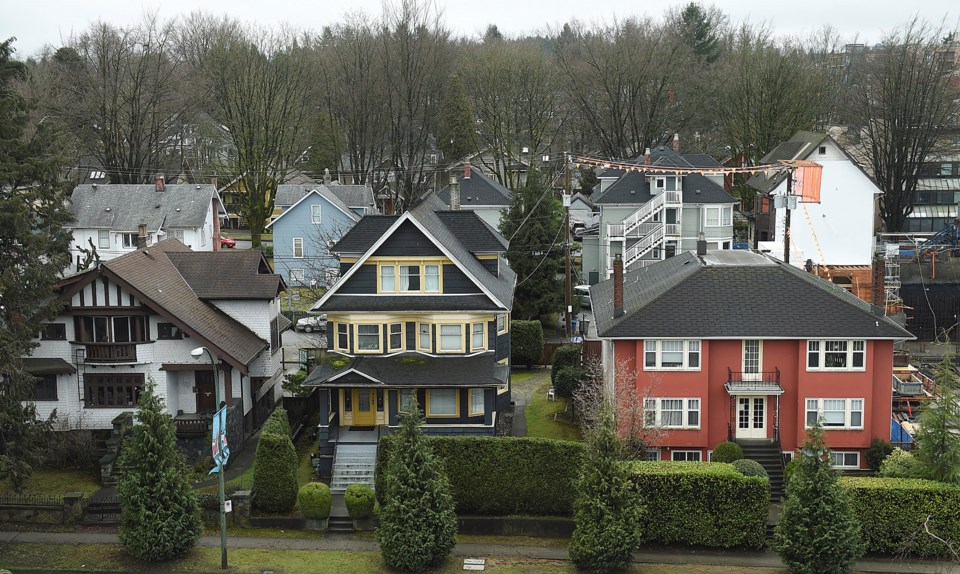What the Vancouver real estate market did in 2015 raised eyebrows; what it’s continuing to do in 2016 is cause for concern, say economists.
“You never know when you’re in a bubble until it bursts, but whenever you see an asset price rising as fast as it is … it does set off alarm bells,” said Sal Guatieri, senior economist with the Bank of Montreal (TSX:BMO).
In 2015, Greater Vancouver residential property benchmark prices rose 19 per cent; single-family houses increased 24 per cent.
From January to April, those price gains continued to accelerate: April benchmark prices for Greater Vancouver rose 25 per cent and single-family homes were 30 per cent more expensive in April 2016 compared with April 2015, according to Real Estate Board of Greater Vancouver statistics.
Bubbles are hard to predict — some real estate watchers have been predicting Vancouver’s bust for years — and telltale signs like a sustained price drop or stagnant rents compared with price gains aren’t in the Metro Vancouver market, according to Guatieri and Tom Davidoff, a professor of economics at the University of British Columbia.
“You can’t rule out that these are reasonable price increases, which means you can’t rule in a bubble,” Davidoff said. “But at the same time that doesn’t mean you can’t say we’re not in a bubble.”
Guatieri noted that even condo prices, the region’s most affordable option, have recently risen by 20 per cent, although there isn’t a shortage of condos in the area. In contrast, detached homes are highly sought-after and in short supply.
“[It] raises the question why are condo prices rising so fast unless you’ve got this element of speculation pushing prices much higher,” Guatieri said.
Factors underpinning the rise in local real estate prices are Vancouver’s strong economy and job growth and the city’s attractions for young people, now Canada’s largest demographic, in their prime home-buying years, Guatieri said.
But he added that the wild card in the Vancouver real estate equation is whether foreign buyers will continue to “juice” the market.
Davidoff and other economists who study real estate say capital inflows from China were a factor in 2015’s huge price jump; in that period, China’s economic slowdown and weakening currency prompted wealthy individuals and companies to take a record $1 trillion out of China. During the same period, Canada received record levels of foreign direct investment from China.
If interest from that quarter continues, it could justify the high price of real estate.
“We could still be at the early part of a wave,” Davidoff said. “If Vancouver is a magnet for China, China is really big relative to Vancouver, so this could rock on for quite a while.”
The danger is that 2015’s price jump could fuel speculative behaviour, Guatieri said.
“People get attracted to the huge price increases,” Guatieri said. “They buy real estate with the intention not of renting it out because the rents and the income wouldn’t cover that property, but simply with the intention of flipping it.
“And that can be very dangerous.”
The prevalence of tactics such as shadow flipping are evidence that that type of speculation is already happening, Davidoff said.
“When you see that kind of panicky fear of missing out,” he said, “if that’s the mentality driving the market – and there are definitely signs that it is – then you can start to sniff that this isn’t right.”
Guatieri doesn’t expect a sudden price drop in Vancouver, but he does expect prices to cool off at some point, likely in reaction to higher interest rates or a weaker B.C. economy. It would take a big economic shock, such as a recession or big jump in interest rates, to trigger a steep drop in prices.
“We’re not anticipating that,” Guatieri said. “But it certainly becomes an increasing probability the longer that prices rise much faster than incomes.”
jstdenis@biv.com
For business news go to biv.com



